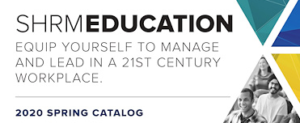One of the biggest biases we have as leaders is ageism. If you’re 35 years old and running a department and you are looking to fill a position on your team that will be your righthand person, the last thing you’re looking for is a 55-year-old to fill that spot! That’s just me being real for a second.
You and I both know that 35-year-old hiring manager is looking for a 25 – 28 year old to fill that spot
That’s mainly because at 35 you’re still basically stupid. I was. You were. We think 35ish is the pinnacle of all knowledge, but it’s really when we just start learning for real.
So, we have this core issue to deal with in workplaces right now. Our leaders are mostly Millennial and GenX, and Millennials are increasing into these roles at a rapid rate. Because of the Boomers leaving in large amounts, there aren’t enough talented young workers to replace the knowledge gap that is being left. So, we are left grappling with what we think we want (youth) with what really needs (experience!).
A recent study at the University of Minnesota found that employers need to add programs to focus on older workers:
The study argued that programs aimed at training workers won’t be enough to satisfy the state’s need for workers between 2020 and 2030. New policy directives and incentives may be needed, including offering pathways for baby boomers to delay retirement, drawing in workers from other states and supporting immigration from other countries
“There’s all this focus on workforce development, but none of it is guided to older workers,” said Mary Jo Schifsky, whose business, GenSync, advocates for meaningful career pathways for older adults and who helped initiate the study for the Board on Aging with the U’s Humphrey School of Public Affairs. “We need career pathways for older workers just as much as we do for younger workers.”
In the U survey, managers ranked baby boomers high on loyalty, professionalism, engagement, and their commitment to producing quality work.
Employers need to find ways to extend the Work-Life Cycle of the older employees that work for them until the workforce, technology, and retraining programs can catch up to fill the void. Most employers are only focused on programs that are looking at younger workers.
So, what can you do as an employer to extend the life cycle of your older employees?
1. Have real conversations with older employees about what they want. Most employers shy away from having the ‘retirement’ conversation with older employees because they think it’s embarrassing or illegal. It’s not. It’s a major reality of workforce planning. “Hey, Mary, Happy 55th Birthday, let’s talk about your future!” Oh, you want to work 18 more years! Nice! Let’s talk about a career path!
I can’t tell you how often I’ve heard a hiring manager say, “I don’t want to hire him because he’s 59 and is going to hire soon.” Well, I spoke to him and he wants to work until he’s 70 (11 years) and our average employee tenure is 4.7 years. I think we’re good!
2. Stop, Stop, Stop, believing that all you can do is hire full and part-time FTEs into roles. If Mary, my 63-year-old financial analyst wants to give me five more years of work, but only wants to work three days per week, in role ‘traditionally’ we’ve only had a full-timer, I’m taking Mary for three days! HR owes it to our organizations and hiring manager to push them out of the box when it comes to schedules and how we have always filled positions. 3 days of Mary is probably worth 3 weeks of an entry-level analyst in the same role!
We do this to ourselves. I hear it constantly from hiring managers, “HR won’t allow me to do that.” Why? Have you asked? No, but HR doesn’t allow us to do anything. We need to come to our hiring managers with solutions and let them see we are open to doing whatever it takes to help the organization meet its people’s needs.
3. Develop programs and benefits specifically designed to retain older employees. I work with a plant manager who developed an entire engineering internship program around having his retired engineers come back and work three days a week with interns and paid them ‘on-call’ wages for the days they weren’t there, so interns could call them with questions at any time. These retired engineers loved it! They could come to do some real work, help out, and still have a great balance.
It went so well, he kept some on all year, on-call, and partnered them with younger engineers who needed the same support and assistance from time to time. The on-call rate was pretty inexpensive, the support and knowledge they got in return, was invaluable.
It all comes down to flexibility on our part as employers to extend the life cycle of our older employees. We no longer have this choice where we can just throw our older employees away and think we can easily replace them. We can’t! There physically isn’t anyone there!
This is about using each other’s strengths. Younger leaders will be stretched and we need to help them stretch. We need to help older employees understand their roles. In the end, we need to find a way where we can all see each other for the strengths we bring to the table, not the opportunities.
It’s our job as HR professionals to work on how we can extend the life cycle of each of our employees.

